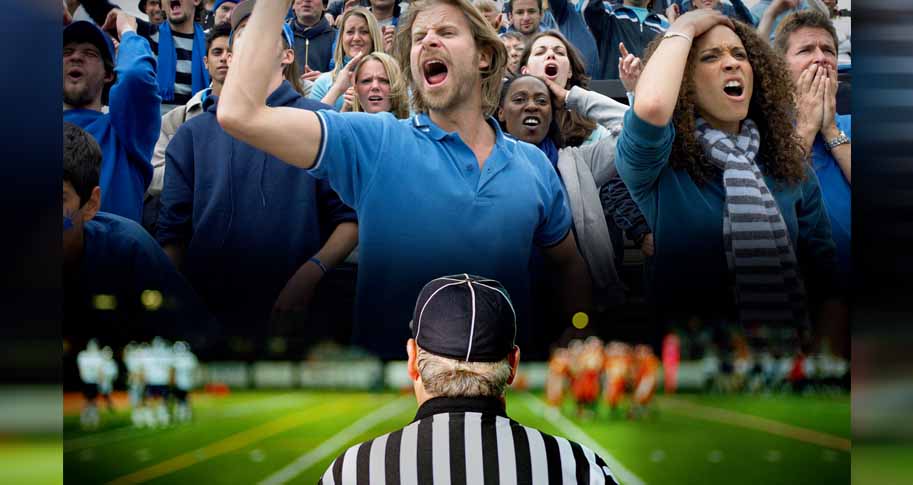
I try not to play what-ifs with sports. It’s rarely productive, and I find far more meaning in using a loss as a meditation on the ephemerality of disappointment. When the Razorbacks reenter that magic circle, records melt away, and I can believe that just maybe they’ll knock off the Crimson Tide this year. I’m still hoping. The 2020 Auburn-Arkansas game still bothers me, though.
Everyone saw it. Even the SEC knew it was a bad call. It’s rare for fans to get so much validation when our reading of the game is usually a lot of wishful thinking and willful ignorance.
Feleipe Franks threw a gorgeous arcing pass to De’Vion Warren, who had easily outpaced the Auburn safety. Arkansas was up for the first time in the game but only by a point. The ball changed hands twice. Auburn couldn’t muster a response. Arkansas’s offense fizzled, 4 and out. The game hinged on one last drive by the home team.
Auburn lands within striking distance. They called for Bo Nix to spike the ball for time to set up a field goal attempt. But Nix bungled it, fumbling the ball. Joe Foucha sprang from well behind the line of scrimmage to fall on the ball, recovered for Arkansas! With 20 seconds to go, the game’s over!
If only. Even with the reduced pandemic capacity, Jordan-Hare Stadium roiled with anger that distorted speakers all across Razorback Nation. The referees instead ruled the fumbled snap as an illegal backward pass with intentional grounding. Auburn keeps the ball, and they make a field goal from just a little farther away. Final score: 30-28, Auburn.
New research from the University of Arkansas might not explain the particulars of that game, but it’s all I could think of when I encountered Adam Stoverink’s article “Relieving the Pressure: Team Familiarly Attenuates External Conformity Pressure on Team Member Decisions.” In the article, Stoverink, associate professor of management at the University of Arkansas, Marilla Hayman, a doctoral candidate at Arkansas, Amanda Ferguson, Patrick Downes, and Rhett Andrew Brymer found that team familiarity helped team members make high-stakes decisions without caving to outside pressures.
Their study had two prongs: first, they investigated how team familiarity affected NCAA football officiating teams when it came to calling penalties, and then, they conducted laboratory experiments to confirm their real-world findings.
Stoverink, Hayman, and their coauthors’ research shows the importance of building strong team cohesion, especially when that team is tasked with making difficult decisions. But it also points to the fault lines we should trace when decisions are clearly influenced by outside forces. The problem is less the magnitude of the pressure so much as a lack of internal resilience.
The Pressures of NCAA Officiating: Initial Case Study
In order to study the impact of outside influence on referees, Stoverink, Hayman, and their coauthors looked at the 2016 NCAA football season, focusing on Division I football teams. They gauged the relative familiarity of the officiating teams by tracking who worked with whom in the preceding four seasons.
The researchers estimated the outside pressure upon the officiating teams through attendance, reasoning that in general, there would be more home team fans than away team fans. To wit, they eliminated all games held in neutral territory, like the Southwest Classic between Arkansas and Texas A&M.
The last important variable according to the researchers is whether the game is high-stakes for the officiating team, which the researchers defined as closely contested games (as opposed to rivalry games). Basically, if the Vegas betting line predicted the teams would end within seven points or the game did in fact end within seven points, regardless of predictions, the researchers considered it a high-stakes game for the purpose of their measurements. In both cases, the scores suggest the officials’ calls could tip the game one way or the other.
Stoverink, Hayman, and the other researchers did qualify their results, acknowledging that there’s no way to measure counterfactuals with this kind of study, and there is always the possibility that the officials’ calls accurately represent a difference in the teams’ behavior on the field. Nevertheless, the results are telling.
The team of researchers found “significant interaction” between conformity pressure and the familiarity of the crew on decision making conformity. When officials weren’t familiar with each other, the crowd exerted a positive effect on the officials’ calls. In other words, the referees were more likely to call the game in favor of the home team. On the other hand, when crews were more familiar with each other, the effect was negative.
The effect started to become significant at 20 games together. And referees who had called 30 games together showed even more resilience in the face of pressure. Moreover, the researchers’ analysis revealed that this resilience remains present during high-stakes circumstances, while there is no significant effect from external pressure during low-stakes games.
These findings have interesting ramifications for season records and game outcomes because “the number of visiting team penalties called has a positive effect on home team wins.” Specifically, for each additional penalty called on the away team, the home team becomes 9.9% more likely to win. Keep that in your back pocket next time you’re betting in real time!
Since highly familiar teams of officials call 1.56 fewer penalties on visiting teams, they reduce the likelihood of a home team winning by 15%. On the other hand, low familiarity crews can increase the chances of a home win from 47% to 82% when pressure to conform increases because on average they call 3.5 more penalties against visiting teams in such circumstances. So, yes, you’re right: your team really does have to play against the refs sometimes.
Stress Testing in the Lab
To confirm their results, Stoverink, Hayman, Ferguson, Downes, and Brymer also conducted a laboratory experiment to control for all the plausible alternative explanations for decision making conformity. They recruited undergraduate business students, who were told they were selected to be on “rater” teams to judge the mock advertisements made by “creator” teams. There were, however, no “creator” teams.
They had each group of three complete a series of discussion questions in a Zoom break-out room while waiting for fake “creator” teams to complete their task. To simulate familiarity, the researchers provided some of the teams with questions that would only generate surface-level discussions, for example, “What are the advantages and disadvantages of artificial Christmas trees?” Other groups were given discussion questions that would instead generate deeper conversation, such as “For what in your life do you feel most grateful?”
Then, to ratchet up the stakes, some of the groups were told they would discuss their team assessment of the advertisements with the “creator” team that produced it, while others were told only the researchers would know how they rated it. Since there were no “creator” teams, once the “raters” had completed their assessments, the researchers told them that the “creator” accidentally left early.
Stoverink, Hayman, and their coauthors also assessed participants’ sense of belonging and how well they felt they knew their team members.
The laboratory experiment confirmed the researchers’ key findings from their NCAA data. They found that teams in which members were familiar with one another were more likely to resist the pressure to inflate their ratings in high pressure circumstances. Specifically, they found that on these familiar teams, it was the members’ sense of belonging that drove their resilience against outside pressures.
Grace Under Pressure
Stoverink, Hayman, and the other researchers show robust results both in the real world and in laboratory settings: when the stakes are high, teams with feelings of belonging and high familiarity can resist the urge to conform to others’ expectations. This is important because we’re asked to make team decisions all the time, and oftentimes, teams can’t deliberate to find consensus. Team members have to make corporate decisions individually.
When people feel like their teams have their backs, they have the confidence to make unpopular decisions, even when there is enormous external pressure to cave. Their research suggests that teams should be composed in ways that encourage familiarity and breed belonging. This way, teams of experts can make the right call and not just the one we all want to hear.
We live in the midst of an epidemic of loneliness. Modern life has taken a toll on all types of relationships, be they personal or professional. Stoverink and Hayman’s research invites us all to scrutinize our teams and ask tough questions of ourselves. Are we really setting ourselves and our teams up for success? Or are we just making ourselves vulnerable to whoever has the strongest opinion?

 Marilla is a Ph.D. candidate in the Management department whose research centers primarily
on the critical areas of diversity, equity, and inclusion. Within this space, she
has projects investigating themes such as bias in performance ratings, barriers to
entrepreneurial innovation, and the hidden challenges faced by low-income women within
the #MeToo movement. Her research has been published in the Journal of Management
with multiple other projects under review at similarly esteemed academic journals.
Marilla is a Ph.D. candidate in the Management department whose research centers primarily
on the critical areas of diversity, equity, and inclusion. Within this space, she
has projects investigating themes such as bias in performance ratings, barriers to
entrepreneurial innovation, and the hidden challenges faced by low-income women within
the #MeToo movement. Her research has been published in the Journal of Management
with multiple other projects under review at similarly esteemed academic journals.





